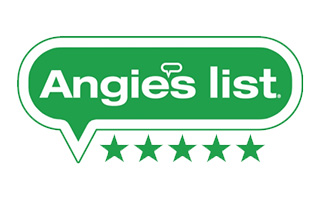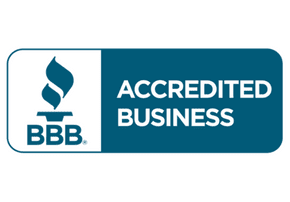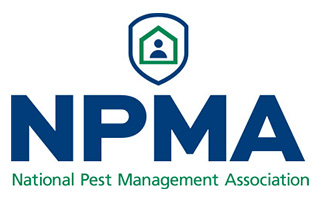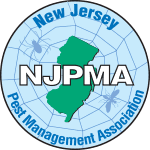Raccoon Information for Homeowners in NJ

The raccoon, to distinguish it from other species, is a medium-sized mammal native to North America. It is the largest of the procyonid family, having a body length of 40 to 70 cm (16 to 28 in), and a body weight of 5 to 26 kg (11 to 57 lb). Its grayish coat mostly consists of dense underfur, which insulates it against cold weather.
Three of the raccoon’s most distinctive features are its extremely dexterous front paws, its facial mask, and its ringed tail. The raccoon is noted for its intelligence, as studies show that it is able to remember the solution to tasks for at least three years. It is usually nocturnal and omnivorous.
Raccoons can scale trees, dig through trashcans in residential areas, and search the bottom of streams for fish and frogs to eat. When coming into contact with residential homes, raccoons are looking to find shelter where they can hide from predators.
Raccoon Library Shortcuts
- How can I tell if there are raccoons in my attic?
- Why is there a raccoon in my attic?
- Are raccoons dangerous?
- How can I prevent raccoons?
How can I tell if there are raccoons in my attic?
Does it sound like someone is living in your attic? Those footsteps and scratching noises could indicate the presence of uninvited raccoon roommates.
Many homeowners deal with raccoons invading their properties. Raccoons are excellent climbers due to their dexterity. If a tree branch is close to your roof, they can easily use this is as a bridge. Downspouts also provide help in raccoon climbing. They find openings, such as holes in soffits, gaps where your gutter meets the roof, torn window screens, and broken vents to slip through. If the hole isn’t big enough, they’ll destroy around it to widen it. They can also tear off loose vents that are old or broken.
The top signs that raccoons are living in your attic are:
- Hearing scratching and scurrying at night or occasionally during the day
- Seeing raccoons going in and out, or actually find them in the attic during the day
- Hearing whining, whimpering, or small crying noises could indicate baby raccoons in the attic
- Finding small dog-sized droppings in the attic
- Unpleasant odors radiating from the attic
Why is there a raccoon in my attic?
With no predators, extra warmth in the fall and winter, and access to close by food and water, unclaimed attics are ideal. As you probably know, raccoons really love trash and food scraps, they’re not picky! This is an especially big problem if you don’t have secured lids on your trash cans.
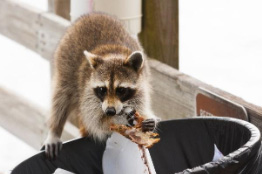
Bird feeders, vegetable gardens, and dog food left out overnight are even easier targets for raccoon snacking. If you have a koi pond, bird bath, or other areas that collect rainwater, raccoons can live. Now that they’ve found food and water, the last thing to do is find shelter. When raccoons explore your roof, they can find many ways to get in. Once they enter, it’s highly likely that they are trying to choose a protected space to have a family. From mid to late summer, raccoons breed.
Are raccoons dangerous?
The biggest concern when it comes to wildlife in the New Jersey is the possibility for transmittable disease.
Raccoons carry rabies, tularemia, canine distemper and hepatitis, raccoon ascarid (roundworms), giardiasis, and leptospira. Humans can contract illnesses spread by raccoons from exposure to their droppings, urine, saliva, bites, or scratches. For this reason we suggest that you never try to handle raccoons on your own.
Dogs and cats that spend time outdoors can come into contact with raccoons. Just as in humans, they can contract the same illnesses.
In addition to health concerns, raccoons can cause significant damage to your home and belongings if they live in your attic. Raccoons have been known to chew through wiring which can be a fire hazard. Personal belongings and other items stored in your attic can be ruined by urine and droppings.
How can I prevent raccoons?
Preventing raccoons is as simple as creating an environment that they find to be unfavorable.
Sealing your roof, attic, and holes in your house they might use to enter!
If you happen to know that there are raccoons snoozing quietly in a certain part of your house, we will be sure to get them out first before sealing in the entrances.
Securing trash can lids, taking down bird feeders, emptying bird baths, clearing general clutter from your property will also help prevention. An abundant amount of raccoons live in our area, so it is difficult to rectify without professional pest control.
While there are dozens of raccoon traps available online, we strongly suggest that you do not attempt to do this on your own. Raccoons can get aggressive when threatened and can bite or scratch you.
You would not want to trap a raccoon inside your house! Call in the experts to do the job to maintain the safety of you and your family.
Want a Free Estimate?
Need to Schedule Service?
Have a Questions?
Why choose E&G Pest Solutions?
- All of our services are warrantied
- We deliver as promised or your money back!
- We have been chosen business leader of the year in Middlesex County as well as a member of Home Advisor and Angie’s List
- We are environmentally conscious and offer uniquely effective pest solutions
What our clients are saying
Our Partners and Awards
Service area
New Jersey:
Ocean County
Essex County
Passaic County
Morris County
Hudson County
Bergen County


